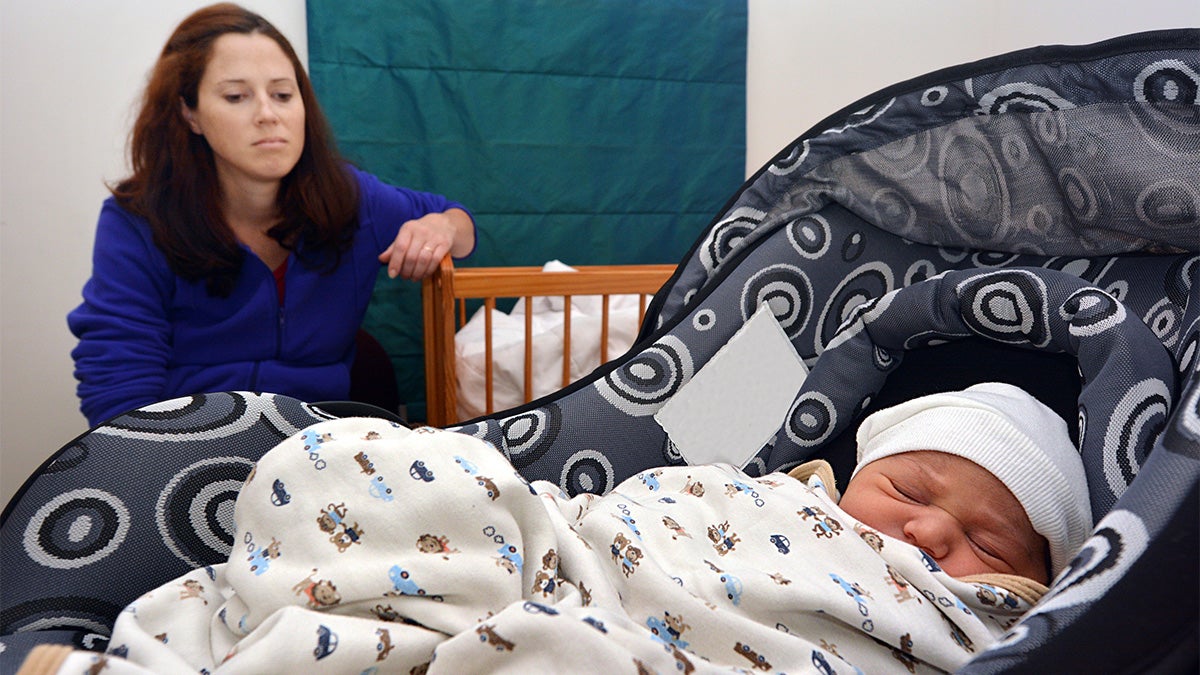Expert panel recommends depression screening for pregnant, postpartum women
 image via ChameleonsEye / Shutterstock.com) " title="shutterstock_201066206-copy" width="1" height="1"/>
image via ChameleonsEye / Shutterstock.com) " title="shutterstock_201066206-copy" width="1" height="1"/>
(image via ChameleonsEye / Shutterstock.com)
An influential panel of medical experts is now advising that all Americans be screened for depression, including women both during and after their pregnancy.
The guidelines represent the first time the U.S. Preventive Services Task Force has specifically highlighted the need for testing women during the childbirth process.
The announcement is welcome news to Ann Smith, a nurse midwife and president of Postpartum Support International.
“Any of us who have ever had years’ worth of experience in this area are thrilled to have these recommendations that all women get screened,” she said.
Treating depression in women during and after pregnancy is now seen as critical, not only for the mother, but also for the well-being of the baby.
“Depression can increase the risk of miscarriage; it can interfere with the mother’s ability to connect with the newborn,” said Penn psychiatrist Michael Thase, who authored an editorial accompanying the published guidelines in JAMA. “It really is an illness that impacts not just the person suffering, but also a young developing person almost entirely dependent on their mother.”
The recommendations echo a New Jersey law that is the sole policy in the nation to mandate screening in women following birth. Smith said the legislation has not been enforced, however, and many mothers still aren’t tested.
But even with increased screening, Smith worries that not all women who get a positive result will be able to get help.
“There probably aren’t enough trained providers who are knowledgeable in this field — right now, anyway — to see the women,” she said.
It’s a concern Thomas Jefferson mood disorder specialist Rajnish Mago shares for the broader population as well.
“Screening is not the problem; screening is the easy part,” he said. “There’s already a tremendous shortage of psychiatrists.”
Of those already identified as suffering from clinical depression, he said, only 38 percent get even the minimal adequate treatment. Primary care physicians pressed for time, he added, might be quick to hand out prescriptions without considering options such as psychotherapy.
“Lots of these people I fear are going to end up being prescribed cheap, generic antidepressants without having a detailed and proper evaluation that they need and deserve,” Mago said.
In its review of the evidence, the task force found support for the use of antidepressants or therapy, either alone or in combination. In recognition that antidepressants slightly increase the risk of harm to the fetus or the breastfeeding baby, the panel recommended cognitive behavioral therapy for pregnant and postpartum women.
Overall, the group gave its advice on screening a grade of B, which requires depression testing to be covered by insurers under the Affordable Care Act.
Typical screening consists of a 45-second questionnaire that asks patients how they’re feeling.
“It’s nine simple questions,” said Thase. “But if you’re in an ultra pinch, the first two answers, questions one and two, no’s on those questions take away almost any chance of having a positive screening result.”
The task force did not stipulate how frequently doctors should screen patients, but Thase said one reasonable option is at every annual checkup, or more frequently for those with a history of mental illness. For pregnant and postpartum women, testing might occur at every visit to the obstetrician.
At any given time, about 7 percent of Americans are clinically depressed.
WHYY is your source for fact-based, in-depth journalism and information. As a nonprofit organization, we rely on financial support from readers like you. Please give today.

